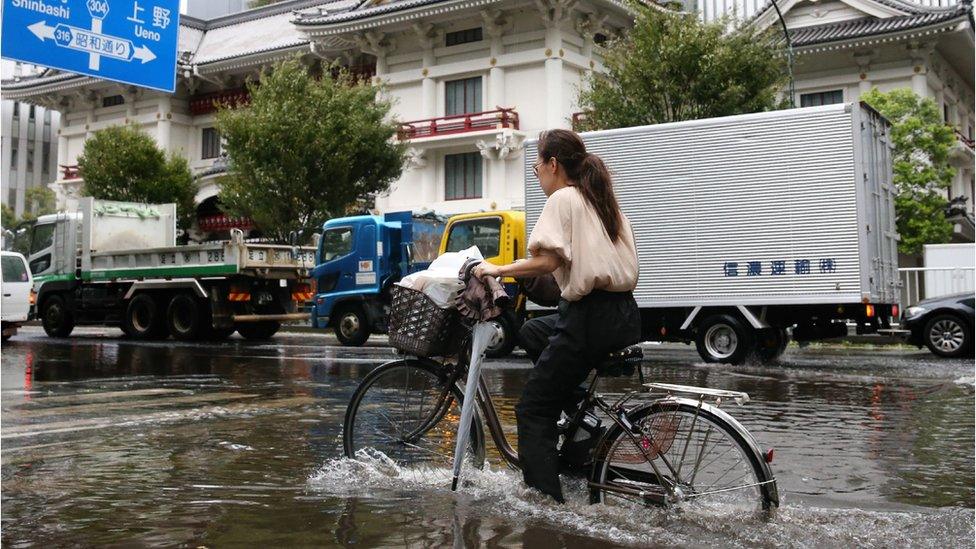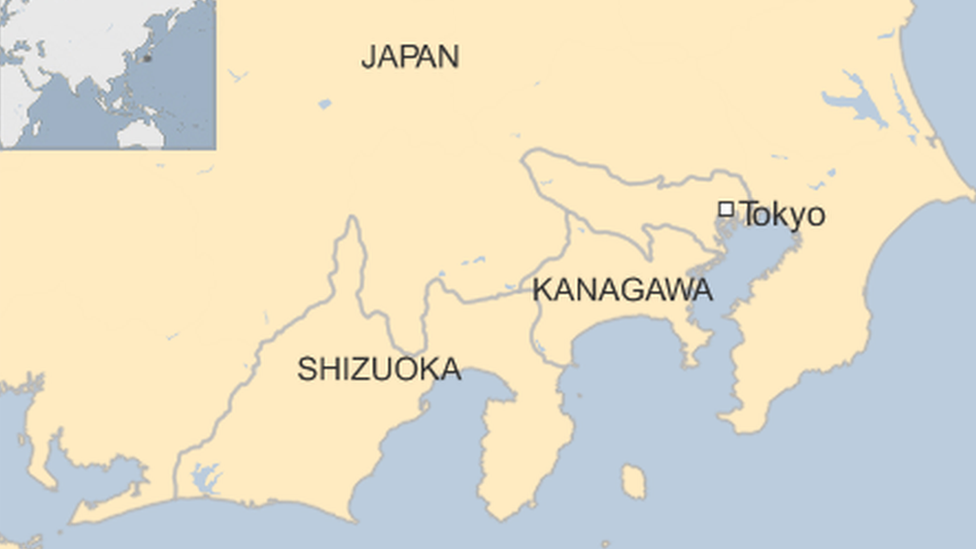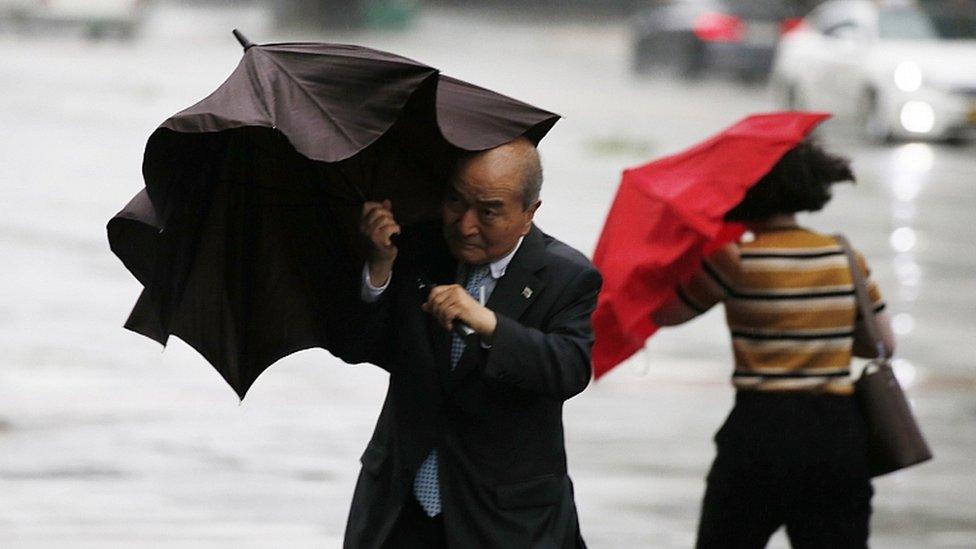Typhoon Faxai: Storm cuts power to 900,000 homes
- Published

Typhoon Faxai battered the Japanese capital with winds of up to 210km/h (130mph)
More than 900,000 homes have been left without power after Typhoon Faxai made landfall near Tokyo.
With winds of up to 210km/h (130mph), Faxai is one of the strongest typhoons to hit the Japanese capital in a decade.
More than 130 flights were cancelled and train lines closed for hours, disrupting the morning commute.
Power cuts hit 910,000 people in the Tokyo area, Japan's national broadcaster NHK said on Monday morning.
The entire city of Kamogawa lost power at one stage, and authorities warned against going outside.
As the storm approached, non-compulsory evacuation warnings were issued to more than 390,000 people in Kanagawa, Shizuoka and Tokyo prefectures.
A woman in her fifties was found unconscious on a street in Setagaya City, a residential area near central Tokyo, and later died in hospital, NHK reported.
CCTV footage showed her being blown head-first into a building by the force of the wind.
More than 30 people have been injured, according to Japanese news agency Kyodo.
The storm comes as the country prepares to host the Rugby World Cup, which is expected to draw more than 400,000 overseas visitors.
The Australian squad's arrival was delayed by the storm, while the French narrowly beat it to Japanese shores.

Typhoon Faxai is now moving back out towards the Pacific, but there is still a risk of flooding and landslides.
Japan's severe weather comes after a separate powerful typhoon swept over the Korean peninsula at the weekend, leaving eight people dead.
North Korea's news agency KCNA said Typhoon Lingling had flooded 460 sq km (178 sq miles) of farmland.
There are fears the storm could worsen severe food shortages in the country.
Earlier this year, the UN warned that up to 10 million North Koreans were "in urgent need of food assistance."
Typhoon Lingling arrives in North Korea after battling the South
- Published8 September 2019

- Attribution
- Published7 September 2019
